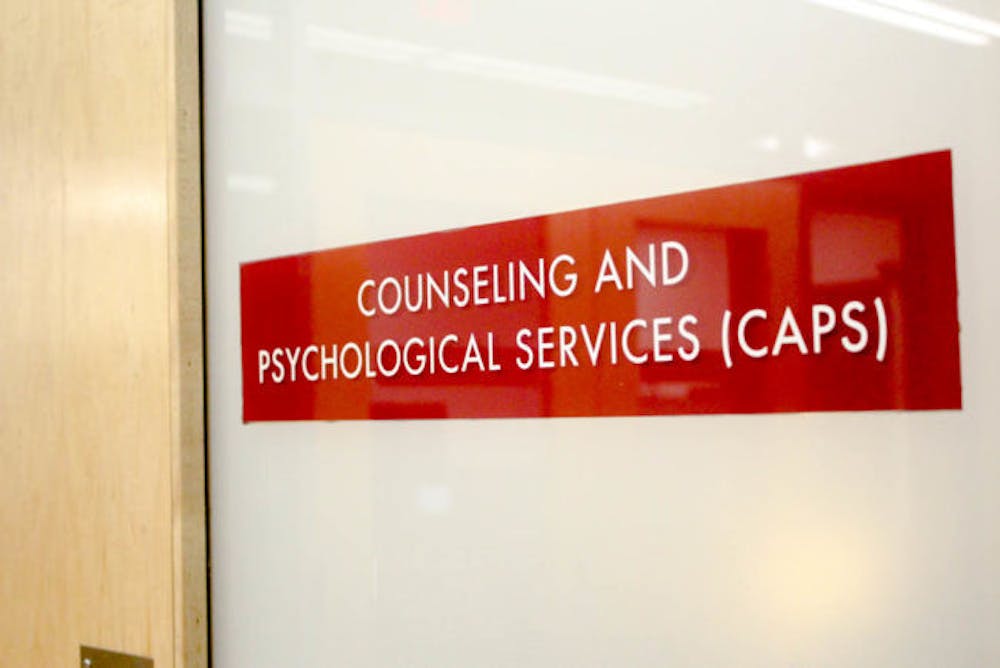After a year of virtual operations, the University’s transition to an in-person learning environment has necessitated adapting to a world neither fully in-person nor fully virtual. For Counseling and Psychological Services, the transition has posed additional challenges due to restrictions regarding where healthcare providers can practice.
After students were sent home in March 2020, CAPS continued to offer care remotely to students living outside of Rhode Island, The Herald previously reported. But in an Aug. 23 announcement, CAPS shared that its counselors who are “located in Rhode Island are unable to provide telehealth services to students outside of Rhode Island” due to “newly-implemented regulations.”
In early July, Governor Dan McKee terminated the March 2020 executive order relaxing telemedicine restrictions that allowed CAPS to treat individuals located outside of Rhode Island. Subsequently, CAPS providers began to transition out-of-state students to local providers in their area, The Herald previously reported.
For Dana Kurniawan ’22, the CAPS counselor she worked with during the spring helped her find local care options outside of CAPS.
“My counselor had really good recommendations for me,” she said. “She referred me to someone out in California, as I was in California at the time.”
Project LETS Co-Coordinator Evan Dong ’22 noted that an important question to consider when thinking about finding care is “what are options (available or not available) outside of CAPS” for students.
While in high school, Dong said, “I was not really in a large city that had things like (therapy). I had to drive 30 minutes to go to a nearby city that had a community mental health center.”
To address this gap for students living in areas where local providers are not as prevalent, a new University partnership with a telehealth application could help students access care. In a Sept. 21 Today@Brown announcement, Executive Director of Health and Wellness Vanessa Britto MSc’96 announced a partnership with HealthiestYou, a telehealth service through which students can access care “from any location, especially while living, studying or traveling outside of Rhode Island both nationally and internationally.”
Specifically, the app will allow students to speak to licensed doctors by phone or video, search for local providers, find low-cost prescriptions and compare prices, according to the app’s website.
“We are thrilled to know that no matter where Brown students are, they will be able to access care,” Britto wrote.
Virtual care is especially beneficial to students with disabilities who can not come back to campus due to concerns around COVID-19, said Project LETS Co-Coordinator Silver Mckie ’22.
“It’s been a really rough two years for disabled people watching everyone around them, or a lot of people around them, basically say, ‘we don’t care about this group of people, we should just reopen up, it only affects this group,’” they said. “Disabled people still really need hybrid options.”
For many students, “the pandemic isn’t over,” Dong said. “I think a question is ‘are we living in denial of that or are we still working with that?’ I hope we can do things as a University, and not just CAPS, that really still meets everyone where they’re at.”
For students able to return to campus, CAPS has begun operating in person with a virtual option available for students living in Rhode Island.
Some students have also sought to use CAPS as a resource through which to seek care outside of the University.
For Mckie, finding care outside of CAPS was necessary to access treatment for mental illnesses outside the scope of the average CAPS counselor’s training, they said. Still, while CAPS can help connect students with off-campus resources, finding open providers can remain a challenge.
Of the two specialists Mckie found in the Providence area, both had waitlists that were “miles long.” Having multiple consultations can also be a tiring process, they added.
Finding outside care in Providence is “not any more difficult than in any other area of the country, but it is difficult in the sense that finding an outside provider is always difficult,” they said.
“I hope that there are people who can get referred to things that better meet their needs if CAPS can’t, and I wish CAPS had more capacity to meet everyone’s needs,” Dong said.





